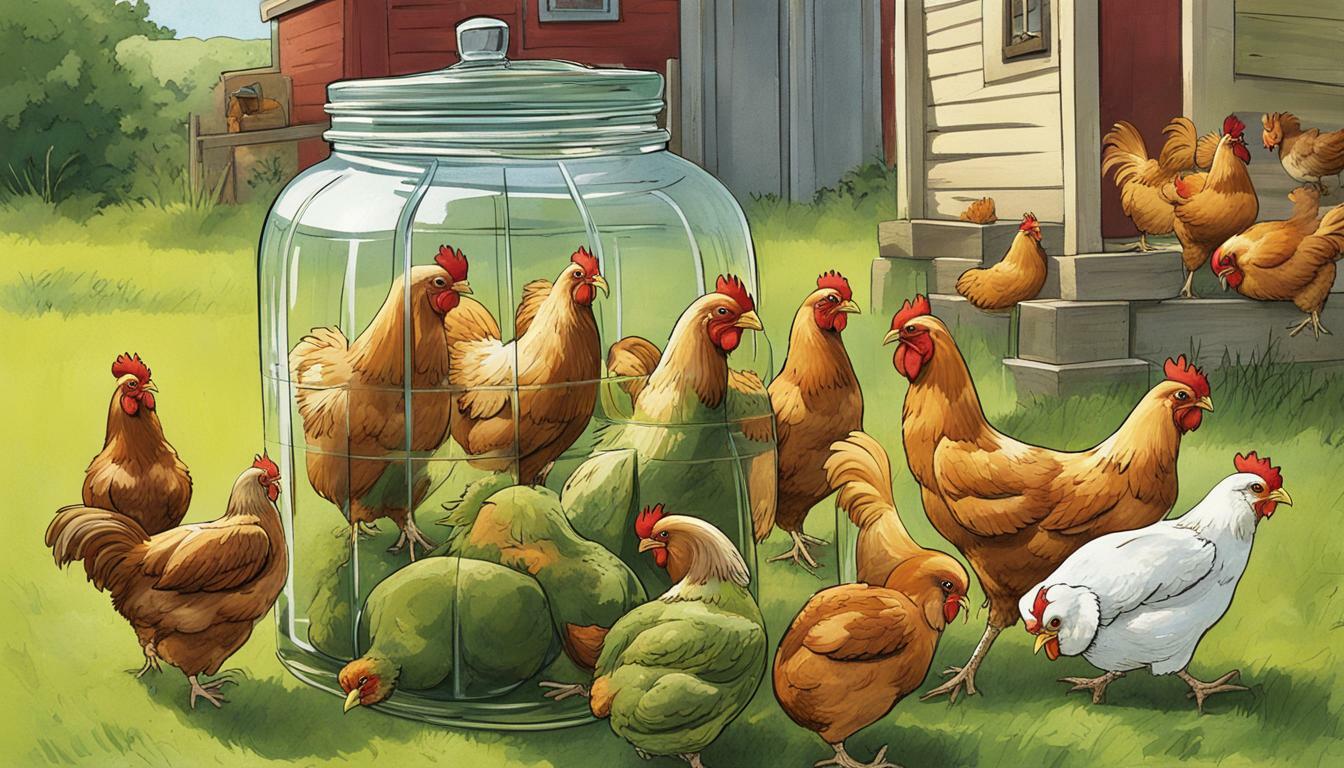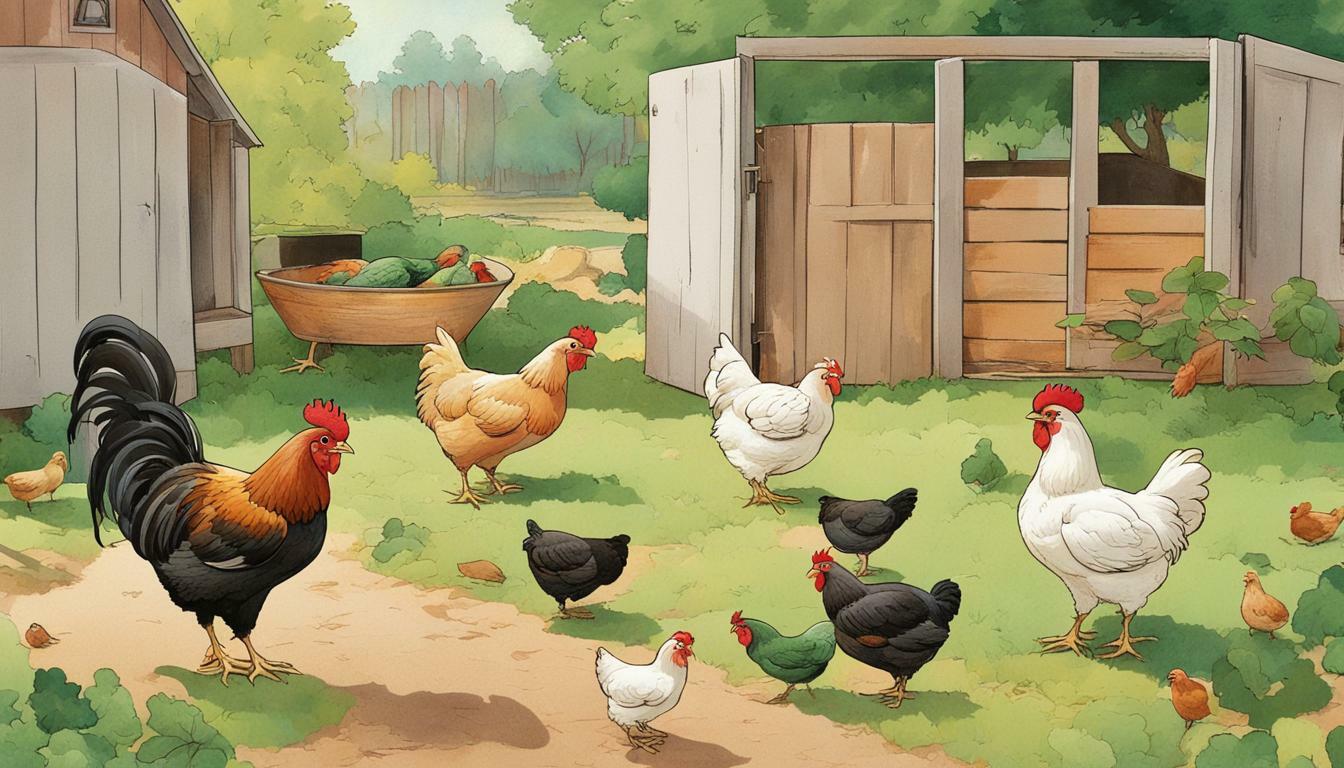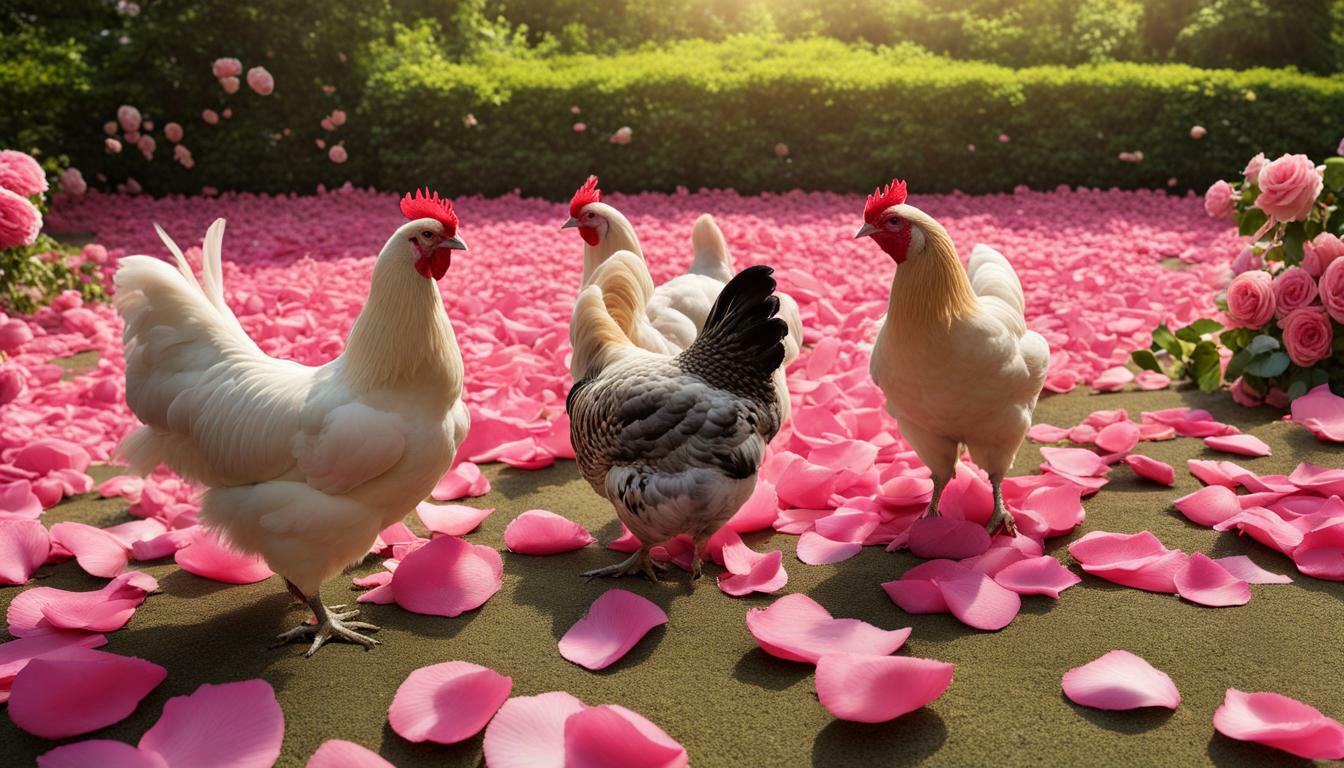Can Chickens Eat Watermelon? What You Need to Know
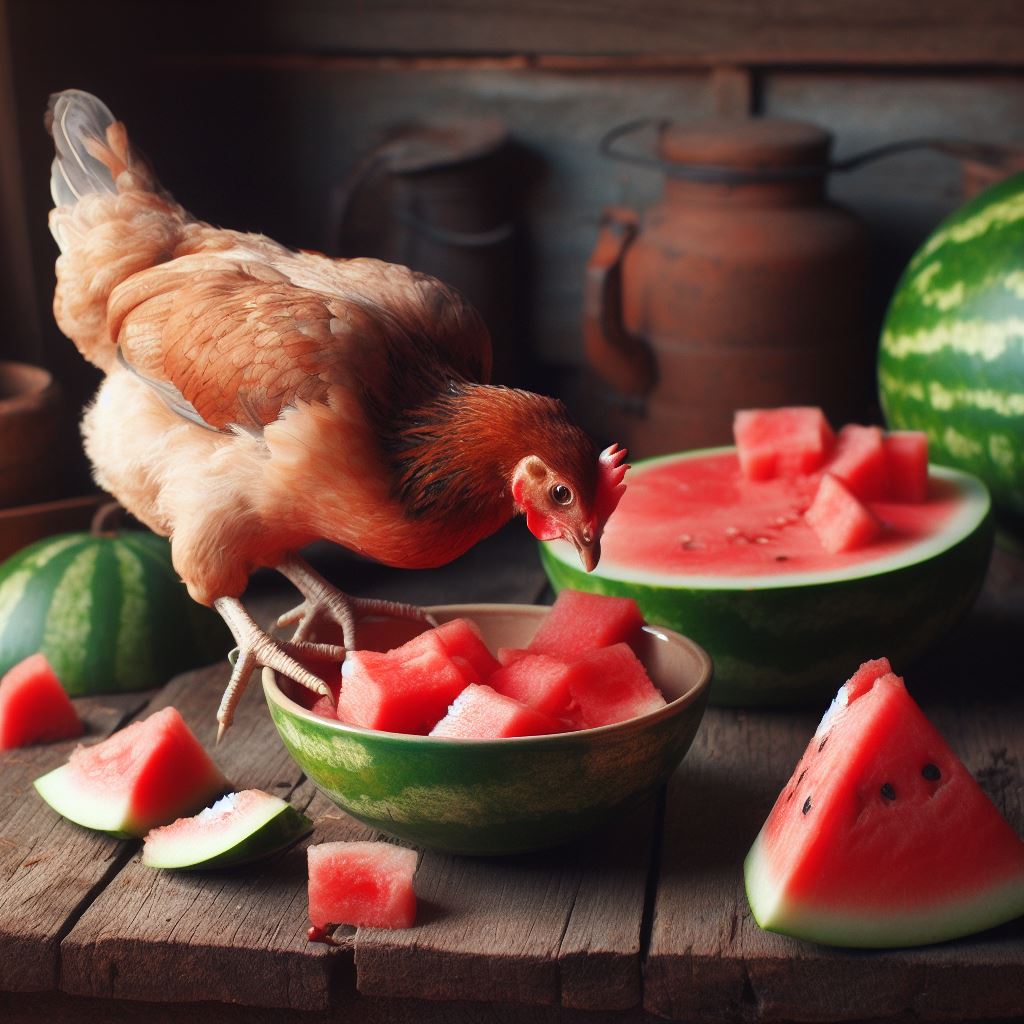
Table of content:
Can Chickens Eat Watermelon? Watermelon can be a tasty and healthy snack for chickens in moderation. Here is a complete guide to feeding chickens watermelon including benefits, risks, preparation tips, and frequently asked questions.
Key Takeaways:
- Watermelon provides vitamins, minerals, and antioxidants beneficial for chickens.
- Too much watermelon can cause loose droppings. Feed watermelon as an occasional treat.
- Slice watermelon into small, chicken-sized bites, avoiding rinds and seeds.
- Most parts of seeded watermelon are safe for chickens, but limit intake of seeds.
- Watermelon is not a replacement for a balanced diet. Offer as part of a variety of treats.
Watermelon is a summer treat that many flock owners offer their backyard chickens. This sweet, low-calorie fruit provides beneficial nutrients and flavor variety. However, watermelon does not replace a complete feed and should only be fed in moderation.
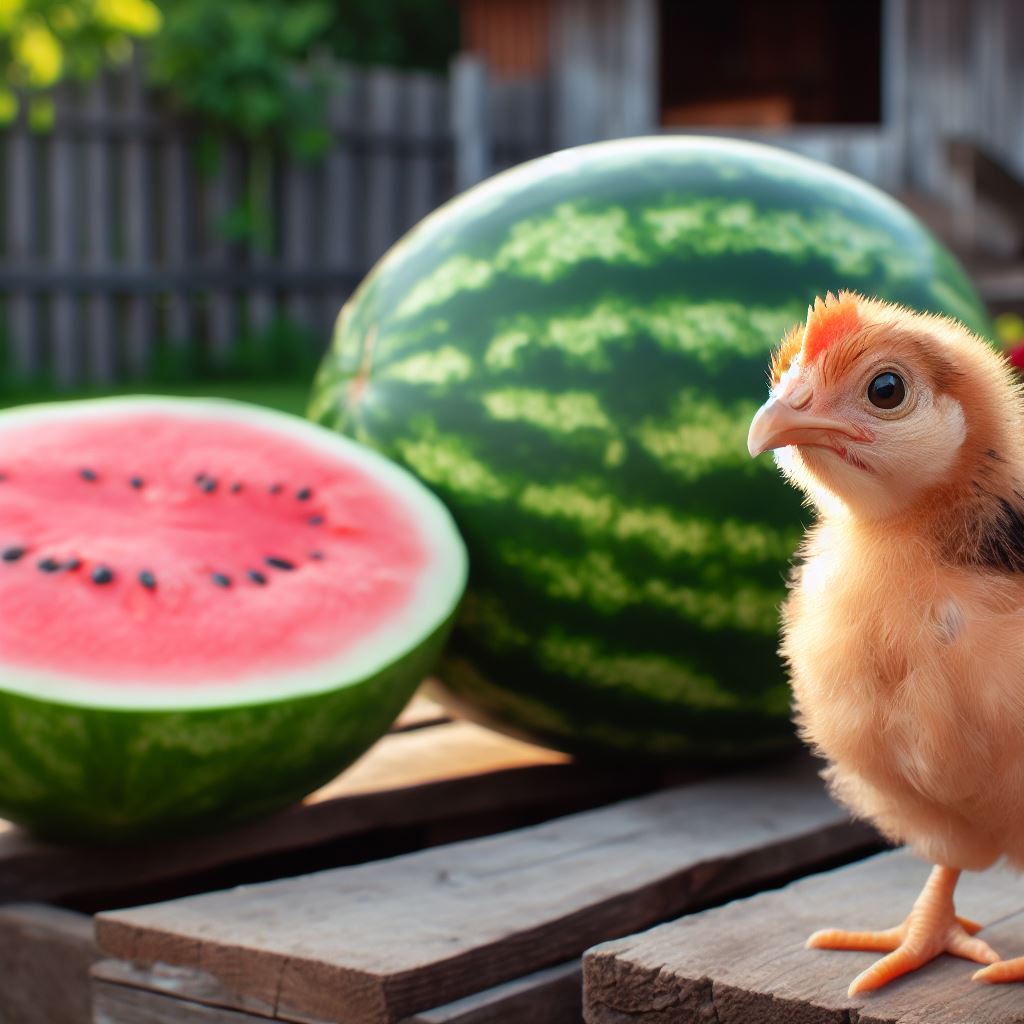 Is Watermelon Good for Chickens?
Is Watermelon Good for Chickens?
Watermelon is safe for chickens to eat and provides some key vitamins and minerals like:
- Vitamin A: Supports vision and reproductive health.
- Vitamin C: Boosts immune system.
- Potassium: Important electrolyte.
- Lycopene: Antioxidant that reduces inflammation.
The water content also helps keep chickens hydrated on hot days.
Feeding chickens treats like watermelon can also alleviate boredom and prevent aggressive pecking. The novel food item gives chickens something new to stimulate natural foraging instincts.
In small quantities, watermelon makes a nutritious, low-calorie treat for chickens.
Can Chickens Eat Watermelon Rinds and Seeds?
Most parts of a seeded watermelon are safe for chickens to eat including the:
- Flesh – Soft, pinkish-red interior with a high water content. Best part for chickens.
- Rinds – Outer green skin. Rinds provide fiber though some chickens dislike the texture.
- Seeds – Small black seeds embedded in flesh. Limit intake as too many may cause crop impaction.
Avoid giving chickens seedless varieties with tough, white rinds. Chickens may choke on the thick texture.
| Watermelon Part | Safe for Chickens |
|---|---|
| Flesh | Yes |
| Rinds | Yes, in moderation |
| Seeds | Yes, in moderation |
The flesh provides the most benefits and is easiest for chickens to digest. Rinds add fiber but chickens may refuse them if tough. Seeds are safe in limited quantities but avoid allowing chickens to eat too many.
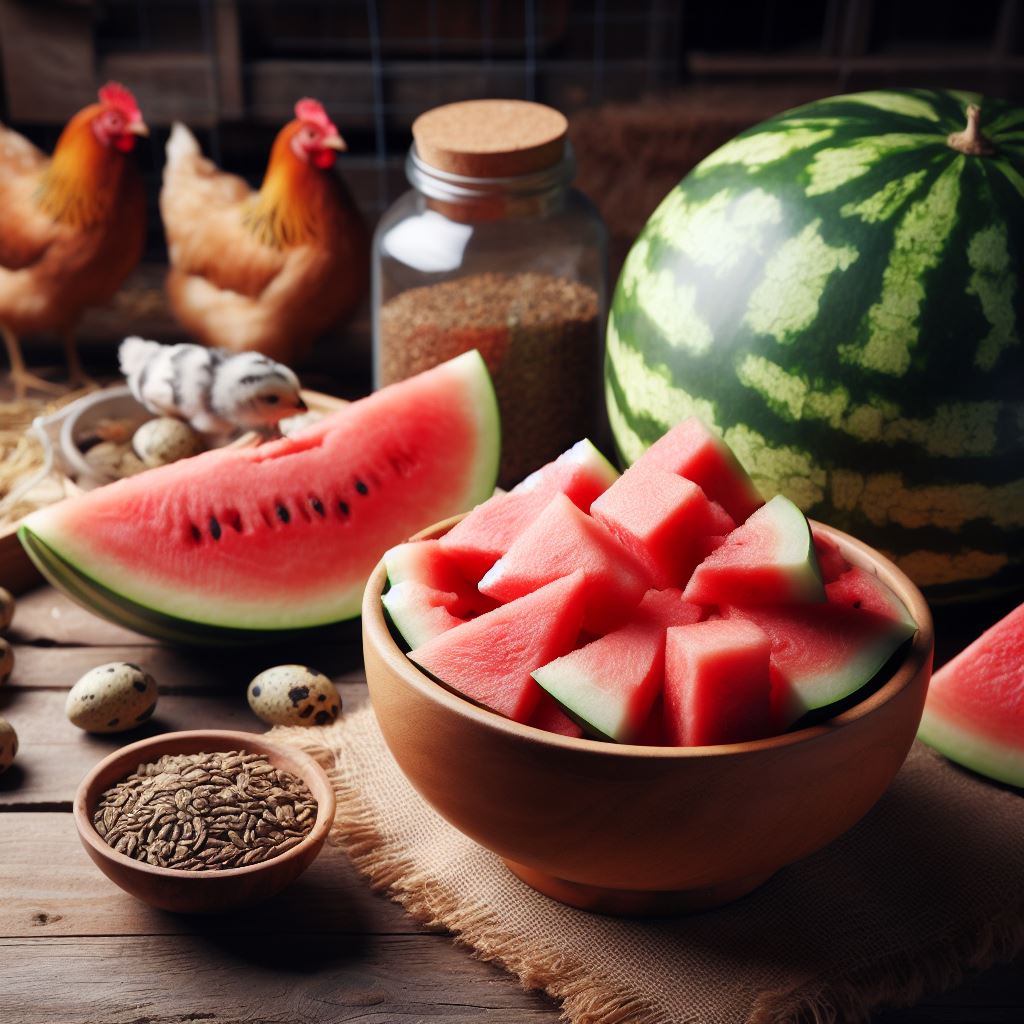 How Much Watermelon Can Chickens Eat?
How Much Watermelon Can Chickens Eat?
Watermelon should only make up a small part of a chicken’s diet. Too much can lead to diarrhea or loose droppings. Feed watermelon to chickens following these guidelines:
- 10% of daily diet – For example, 1 cup of watermelon for 10 lbs of feed per day
- 1-2 times per week – As an infrequent treat
- Small portions – Around 1-2 oz per chicken
- Chopped into bites – Cut into small, chicken-mouth sized pieces
Monitor to ensure the seeds and fiber in the rind do not cause crop impaction. Increase portion sizes slowly to gauge effects.
Watermelon is best fed in moderation alongside a complete feed and balanced diet. Avoid allowing chickens to fill up on watermelon instead of feed.
How to Prepare Watermelon for Chickens
Watermelon requires little preparation to be offered to backyard chickens. Follow these tips:
- Wash thoroughly – Clean rinds and flesh to prevent bacteria or parasites.
- Remove rinds – Peel off thick rinds if desired, though not necessary.
- Cut into small pieces – Slice watermelon into thin wedges or small chunks.
- Serve chopped – Cut up any large chunks into bite-sized bits.
- Provide fresh – Offer immediately after cutting instead of storing.
Dispense watermelon pieces in spaces around the run or coop to encourage natural foraging. Make sure all chickens get a chance to enjoy this seasonal treat.
Are There Risks to Feeding Chickens Watermelon?
Watermelon poses a few potential risks including:
- Loose droppings – Too much watermelon may cause temporary diarrhea.
- Dehydration – Can occur if chickens fill up on watermelon instead of drinking water.
- Crop impaction – Excess seeds or rinds can get lodged in crop if not chewed properly.
- Boredom – Chickens may hold out for watermelon and refuse standard feed.
Monitor chickens closely when first offering watermelon. Introduce slowly and discontinue if any signs of illness or behavioral changes occur.
Never leave chickens unsupervised with access to a whole watermelon. Eating the rinds or excessive seeds increases impaction risk.
Watermelon FAQs
Can chickens eat watermelon rinds?
Yes, the rinds are safe for chickens but may cause digestive upset if a large amount is eaten. Chop rinds into small pieces to reduce this risk.
Can chickens eat watermelon everyday?
No, watermelon should only be fed 1-2 times per week at most. The seeds, sugar, and water content make it unsuitable as a daily treat.
Do chickens like watermelon?
Most chickens enjoy the sweet taste of watermelon. This seasonal fruit provides a fun source of foraging enrichment.
When can chickens eat watermelon?
Watermelon is best fed during the summer when the fruit is ripe and readily available. It can be fed as a cool, hydrating snack.
Is watermelon a treat for chickens?
Yes, watermelon is best fed as an occasional treat a couple times a week. It should not make up a substantial part of a chicken’s diet.
Conclusion
During hot summer months, watermelon can provide a low-calorie, nutrient-rich snack for backyard chickens. Feed watermelon in moderation 1-2 times per week.
Limit portion sizes to 10% of the total daily feed amount. Be sure to prepare watermelon by removing rinds, chopping into small pieces, and avoiding excessive seeds.
Monitor chickens closely for any signs of digestive upset. While not a necessary part of a chicken’s diet, small amounts of this juicy melon provide a refreshing, healthy treat.
Welcome. I’m Adreena Shanum, the proud owner of this website, and I am incredibly passionate about animals, especially poultry. I founded adreenapets.com as a labor of love, stemming from my desire to share my knowledge and experiences with poultry enthusiasts worldwide.


